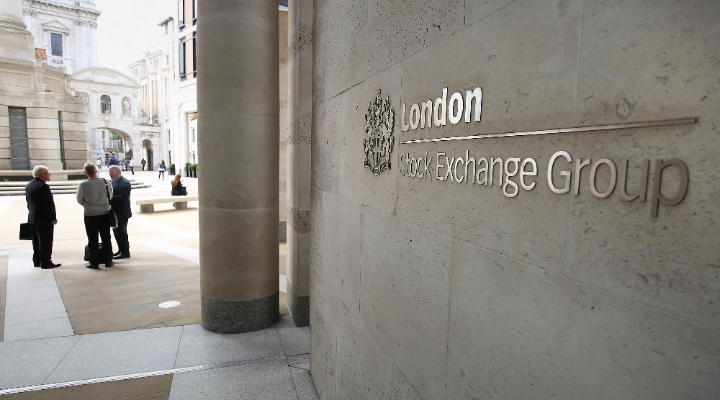Christopher Johnson: Welcome to Morningstar U.K. My name is Christopher Johnson. Today, I'm joined by Pieter Staelens, Portfolio Manager of the CVC Income & Growth Trust. Thank you so much for being here with me.
Pieter Staelens: Thanks, Chris.
CJ: So, my first question to you is what is the missing link between ISAs and investment trusts?
PS: Investment trusts are actually perfect for ISAs. I mean if you think of it, a lot of investment trusts give retail investors access to asset classes that are generally only accessible to larger institutional investors and it's the same for us. When I look at our investor base, the very large majority are institutional investors, but through this trust we give access to more retail investors. And if you can put this in an ISA wrapper, we provide income and growth to investors, so it's nice to be able to put that in an ISA wrapper.
CJ: So according to the Association for Investment Companies the share price total return reached 14.4% over the one year to March 2024. So, what has been the key to the fund's recent success?
PS: We've had a very strong year. And if you look at the 14.4%, that excludes the dividends because we're paying roughly 9% dividend yields right now. So, the all-in return for investors were great last year. And what drives that? It's the high income we're getting on the loans we're investing in right now. That's partially a result of base rates having gone up a lot. So, as inflation went up, the central banks hiked base rates and that has really flown through to the income we're generating on the fund. And on top of that, we have a more credit opportunities sleeve in the fund and that's performed incredibly well as well over the last 12 months. So, because if you think of it over the last 10 years or so central banks were doing QE, they were keeping credit spreads tight, so the coupons we were getting were much lower previously and now with central banks stepping back and not engaging in QE anymore, there's a lot more interesting opportunities we can look at and that's great for our investors.
CJ: Doncasters, the superalloy manufacturer is your top issuer at 5.41%. So, why this company?
PS: This is a company we've been following for many, many years, and that's the same across the entire platform. A lot of the businesses we're lending to we've been following for many, many years. And at some point, the loans did trade off and we managed to buy some of these loans at a nice discount to par. Of course, things didn't really work out as planned and we had to go through a financial restructuring of the business and so we actually ended up owning the equity of the business. And then we spent a lot of time looking at the business. We put a new board in place, we put a new management team in place, and the company has really grown earnings considerably. The equity valuation has gone up nicely over the last couple of years and we're confident that the business will continue to grow their earnings. So, we continue to see further upsides to this position. So, it used to be a smaller position, but because of the growth we've seen in the share price of the business, it's actually grown a much bigger position over time.
CJ: And so how are you involved in changing the management of the team at Doncasters?
PS: The previous owners of the business, they had some internal issues, and they couldn't repay our loans when the loans were due. And similar to what a bank would do, if you cannot repay your mortgage, we basically enforced our security and we took over the business as a group of lenders effectively. And through that, we put a new board in place, put new management team in place and we effectively control the business right now.
CJ: Another issuer that I wanted to hear a little bit about would be Hotelbeds, a Spanish company? Can you talk to me about that?
PS: Yeah. So, Hotelbeds is a business we invested in on the back of COVID. I mean, obviously the business was impacted from COVID. So, they are a B2B operator. So, when hotels have spare bedrooms, they can put that on the Hotelbeds system. And then travel operators can look into that system to see which hotels have availability. So, they're effectively a crucial part of the travel infrastructure. And because they were so crucial to both their clients and suppliers, we thought that this was going to be a business that would come out of COVID in much better shape. Of course, the business had its issues during COVID. There was cash burn and everything. But we did feel comfortable that the valuation of the business was much higher than the debt we were investing in, and that the business would come out of COVID much stronger. And it has actually played out really nicely. The business is now generating higher revenues and EBITDA than pre-COVID. And there's been some talk in the press that the business is may be looking at an IPO. So again, that's an investment thesis that worked out really well for us.
CJ: I was quite interested by your January factsheet. So, in it you said that you reduced the fixed rate of high yield exposure in the fund. That was after the rally that took place in November-December of 2023. So, what drove that decision?
PS: It may sound counterintuitive when central banks are maybe more likely to cut rates than to hike rates to increase floating rates exposure and reduce fixed rate exposure. But as with anything in financial markets, it's not about what central banks are going to do next, but about what's priced into the markets already. So, in January, the market was pricing in a lot of rate cuts by central banks. When you look at inflation and some of the inflation data that came out even this morning, we're seeing 6% wage growth in the U.K. We're still far away from that 2% target that central banks had set. So, we believe that there may be rate cuts coming, but they're not going to come as quickly as the market was pricing in. So floating rates credit effectively looked a lot more interesting than fixed rate credits, because we're getting much higher coupons. These coupons may go down marginally over time, but I think at least for the near term, floating rate credit looks a lot more interesting.
CJ: Pieter, thank you so much for taking the time to speak to me.
PS: Alright. Thanks Chris.
CJ: This is Christopher Johnson from Morningstar UK.




























